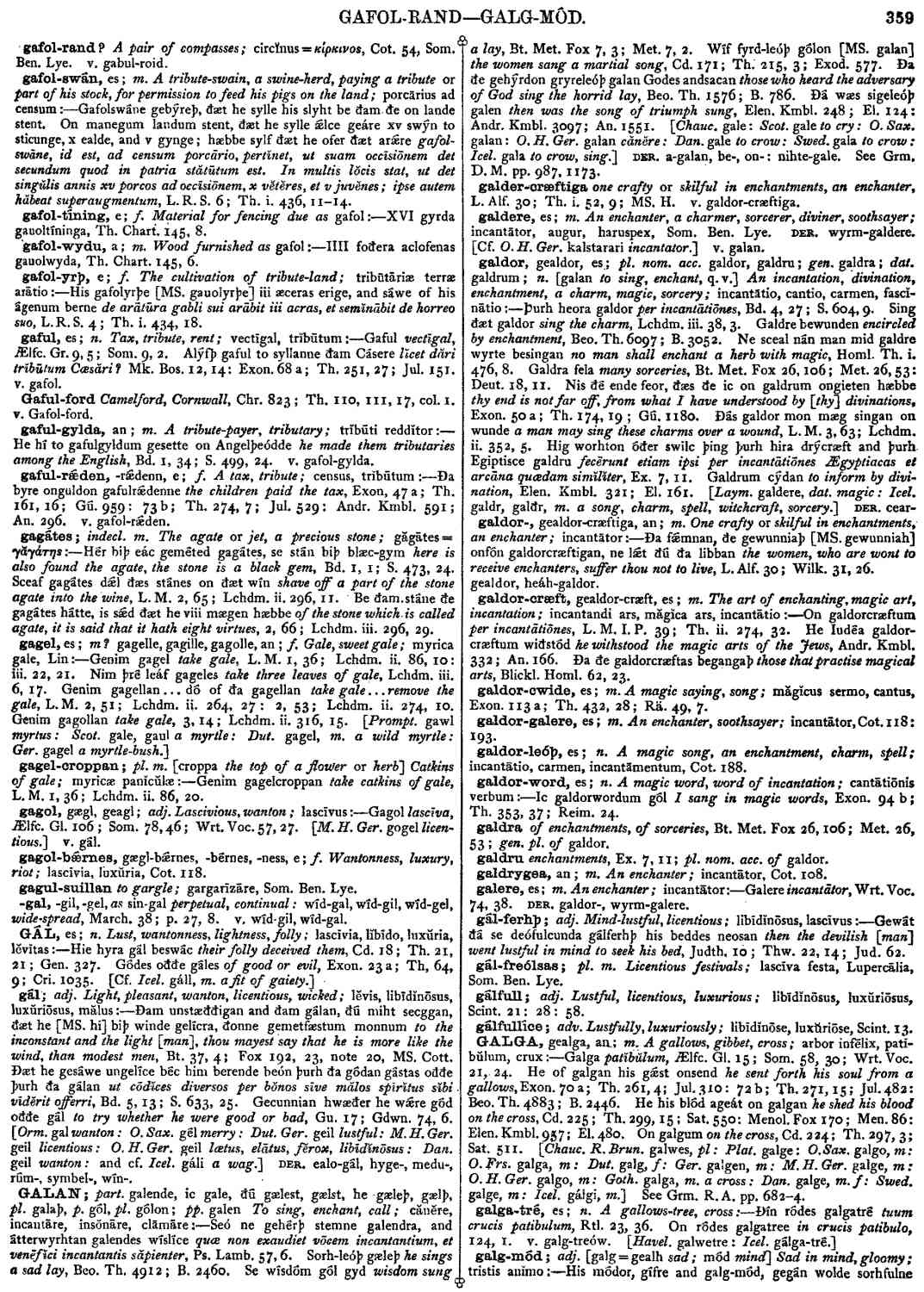gál
- adjective
-
Ðam unstæððigan and ðam gálan, ðú miht secggan, ðæt he [MS. hi] biþ winde gelícra, ðonne gemetfæstum monnum
to the inconstant and the light [man], thou mayest say that he is more like the wind, than modest men,
- Bt. 37, 4 ;
- Fox 192, 23, note 20, MS. Cott.
-
Ðæt he gesáwe ungelíce béc him berende beón þurh ða gódan gástas oððe þurh ða gálan
ut cōdĭces diversos per bŏnos sīve mălos spīrĭtus sĭbi vīdĕrit offerri,
- Bd. 5, 13 ;
- S. 633, 25.
-
Gecunnian hwæðer he wǽre god oððe gál
to try whether he were good or bad,
- Gu. 17 ;
- Gdwn. 74, 6.
Bosworth, Joseph. “gál.” In An Anglo-Saxon Dictionary Online, edited by Thomas Northcote Toller, Christ Sean, and Ondřej Tichy. Prague: Faculty of Arts, Charles University, 2014. https://bosworthtoller.com/13207.
Checked: 1